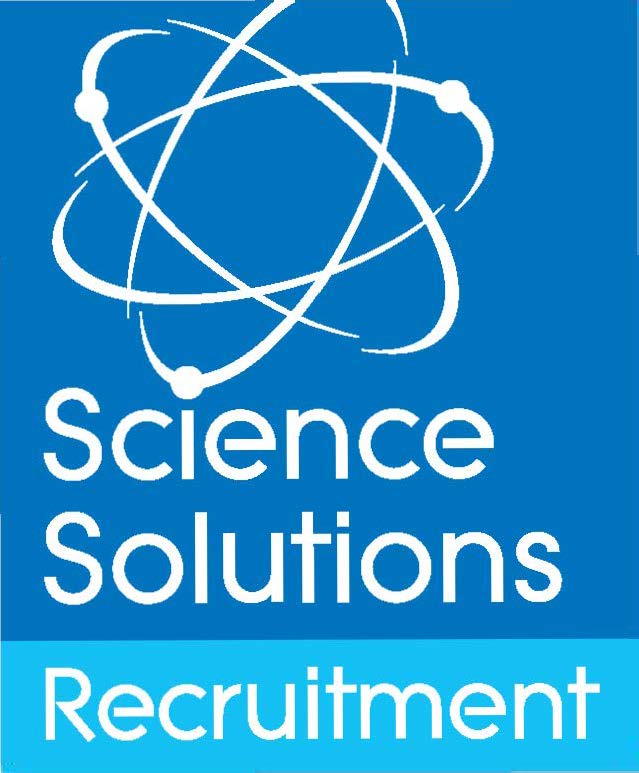 Frances Arnold, Caltech, United States
Frances Arnold, Caltech, United States
Frances Arnold is the Linus Pauling Professor at the California Institute of Technology. She received the Nobel Prize in Chemistry in 2018 for pioneering the directed evolution of enzymes
 Shankar Balasubramanian, University of Cambridge, United Kingdom
Shankar Balasubramanian, University of Cambridge, United Kingdom
Balasubramanian studies the chemistry, structure and function of nucleic acids. He co-invented the leading next generation DNA sequencing methodology, Solexa sequencing (now Illumina). He also works on four-stranded structures called G-quadruplexes and chemical methods for sequencing epigenetic features in DNA to understand their function.
 Vy M. Dong, University of California, Irvine, United States
Vy M. Dong, University of California, Irvine, United States
Vy Dong was born in Big Spring, Texas and spent early childhood in west Texas before moving with family to Anaheim, California. She graduated magna cum laude from UC Irvine where she majored in chemistry and completed an honor's project with Larry Overman. After graduation, she joined David MacMillan's group at UC Berkeley, and then moved with his group to Caltech to complete her doctoral studies. Her Ph.D. thesis featured variants of the zwitterionic-Claisen rearrangement and a total synthesis of erythronolide B. As an NIH postdoctoral fellow, Vy pursued training in organometallic and supramolecular chemistry with Robert Bergman and Kenneth Raymond at Berkeley. She began her independent academic career at the University of Toronto, where she was promoted with tenure and named the Adrian Brook Professor. After six years in Canada, Vy returned to the United States to assume a professorship at her alma mater, UC Irvine. Professor Dong's research team is interested in new reaction methods, enantioselective catalysis, and natural product synthesis. She is an associate editor at Chemical Science and recipient of the 2019 ACS EJ Corey Award.
 Tanja Gaich, University of Konstanz, Germany
Tanja Gaich, University of Konstanz, Germany
Prof. Dr. Tanja Gaich received her PhD under the supervision of Prof. Dr. J. Mulzer in 2009. She then worked as an Erwin Schrödinger fellow (FWF) in the laboratory of Prof. Dr. P. S. Baran at TSRI La Jolla CA. In 2010, she moved to the Leibniz University Hannover to start her independent career (mentorship of Prof. Dr. M. Kalesse), and was funded by the "Liebigstipend (FCI)" and the Alexander von Humboldt Foundation with the "Sofja Kovalevskaja prize". Since 2015 she is a full professor of Organic Chemistry at the University of Konstanz.
 Tanja Gulder, Technische Universität München, Germany
Tanja Gulder, Technische Universität München, Germany
Tanja Gulder studied chemistry at the University of Wuerzburg. After earning her Ph.D. with Prof. Bringmann in 2008, she pursued postdoctoral studies with Prof. Baran at The Scripps Research Institute. She started her independent career in 2011 supported by a Liebig fellowship (FCI) at RWTH Aachen. In 2014, she moved as a Emmy-Noether-research-group leader to TU Munich, where she has become the Heisenberg-Professor for Biomimetic Catalysis in 2018.
 Robert Knowles, Princeton University, United States
Robert Knowles, Princeton University, United States
A native of Virginia’s Shenandoah Valley, Rob received a B.S in chemistry from the College of William and Mary in 2003. He went on to receive his PhD in synthetic organic chemistry from Caltech in 2008 for his work on natural product synthesis in the labs of Dave MacMillan. Following his doctoral work, Rob moved to Eric Jacobsen’s lab at Harvard University as a NIH postdoctoral fellow, where his work focused on asymmetric catalysis and new reaction development. Rob moved to Princeton in the summer of 2011, where his group’s work has focused primarily on the applications of proton-coupled electron transfer (PCET) in organic synthesis. In 2017 he was promoted to Professor of Chemistry.
 Daniele Leonori, University of Manchester, United Kingdom
Daniele Leonori, University of Manchester, United Kingdom
Daniele completed his PhD in 2010 at the University of Sheffield under the supervision of Prof. Iain Coldham. After postdoctoral studies with Prof. Magnus Rueping (RWTH Aachen University) and with Prof. Peter H. Seeberger (Max Planck Institute of Colloids and Interfaces) he joined the group of Prof. Varinder K. Aggarwal FRS as Research Officer (University of Bristol). In 2014 he commenced his independent career as Lecturer in Organic Chemistry at the University of Manchester and was promoted to Reader in 2018. Daniele was awarded an EPSRC Early Career Fellowship in 2016, the ERC Starting Grant in 2017 and the RSC Harrison-Meldola Memorial Prize in 2018
 Rubén Martin, Institute of Chemical Research of Catalonia, Spain
Rubén Martin, Institute of Chemical Research of Catalonia, Spain
Rubén Martin received his PhD in 2003 (University of Barcelona, Prof. Antoni Riera). During the next 4 years (2004-2008) he conducted postdoctoral studies at the Max-Planck Institut für Kohlenforschung as a Humboldt fellow (Prof. Alois Fürstner) and at MIT (Prof. Stephen Buchwald). In September 2008 he initiated his independent career as an assistant professor at ICIQ. In July 2013 he was promoted to associate professor and subsequently to ICREA Research Professor. His interests concern the discovery and development of synthetically useful organometallic methodologies via inert bond-activation techniques.
 David A Nicewicz, University of North Carolina Chapel Hill, United States
David A Nicewicz, University of North Carolina Chapel Hill, United States
Dave completed his Ph.D. with Prof. Jeff Johnson at the University of North Carolina at Chapel Hill in 2006 and was a Ruth L. Kirschstein postdoctoral fellow with Professor David MacMillan at Princeton University from 2007-2009. Nicewicz joined the faculty at the University of North Carolina at Chapel Hill in 2009 as an Assistant Professor and rose to the rank of Professor in 2018. His research is focused on single electron mediated processes in organic chemistry.
 Robert Phipps, University of Cambridge, United Kingdom
Robert Phipps, University of Cambridge, United Kingdom
Robert graduated from Imperial College London and moved to the University of Cambridge to complete his PhD with Prof. Matthew Gaunt. Following this, he worked at the University of California, Berkeley with Prof. F. Dean Toste and took up his current position as a Royal Society University Research Fellow in at the University of Cambridge in late 2014.
 Tobias Ritter, Max-Planck-Institut für Kohlenforschung, Germany
Tobias Ritter, Max-Planck-Institut für Kohlenforschung, Germany
Tobias Ritter was appointed as Assistant Professor in the Department of Chemistry and Chemical Biology at Harvard, promoted to Associate Professor in 2010, and to Professor of Chemistry and Chemical Biology in 2012. Since 2015 he is director at the Max-Planck-Institut fuer Kohlenforschung in Germany, he became Managing Director in 2018. In 2011, Tobias founded SciFluor LifeScience, a clinical pharmaceutical company in Cambridge, Massachusetts
 Tomislav Rovis, Columbia University, United States
Tomislav Rovis, Columbia University, United States
Tomislav Rovis was born in Zagreb in the former Yugoslavia but was largely raised in Southern Ontario, Canada. Following his undergraduate studies at the University of Toronto, he earned his Ph.D. degree at the same institution in 1998 under the direction of Professor Mark Lautens. From 1998-2000, he was an NSERC postdoctoral fellow at Harvard University with Professor David A. Evans. In 2000, he began his independent career at Colorado State University and was promoted in 2005 to Associate Professor and in 2008 to Professor and John K. Stille Chair in Chemistry. His group's accomplishments have been recognized by a number of awards including an NSF CAREER and a Roche Excellence in Chemistry award. He has been named a GlaxoSmithKline Scholar, Amgen Young Investigator, Eli Lilly Grantee, Alfred P. Sloan Fellow, Monfort Professor at Colorado State University, Fellow of the American Association for the Advancement of Science, Katritzky Young Investigator in Heterocyclic Chemistry, and an Arthur C. Cope Scholar. In 2016, he moved to Columbia University where he is currently Professor of Chemistry.
 Franziska Schoenebeck, RWTH Aachen, Germany
Franziska Schoenebeck, RWTH Aachen, Germany
Franziska Schoenebeck has been a Full Professor at the Institute of Organic Chemistry at RWTH Aachen University since the summer of 2016. Professor Schoenebeck was born and raised in Berlin, Germany. From 2001-2004, she studied Chemistry at the Technical University of Berlin and the University of Strathclyde in Glasgow, UK. She undertook her PhD in synthetic organic chemistry in the group of Prof. John A. Murphy in Glasgow, Uk. In 2008 she moved to California to work with Prof. K. N. Houk at UCLA, where she was involved in computational studies of organic reactivity. In 2010, she joined the faculty of the ETH Zürich as an Assistant Professor. In 2013, she was appointed Associate Professor at the Institute of Organic Chemistry at RWTH Aachen University and promoted to Full Professor in 2016. She is the recipient of the Novartis Chemistry Lectureship (2016-2017), an ERC Starting Grant, the 2014 'Dozentenpreis' of the German Chemical Industry Fund, the 2014 ORCHEM Prize by the German Chemical Society, the 2014 Marcial Moreno Lectureship by the Spanish Royal Chemistry Society, the 2014 JPOC Award for Early Excellence in Physical Organic Chemistry and the ADUC Prize 2012. Her research program is based at the interface of synthetic organic, mechanistic and computational chemistry with a strong emphasis in homogeneous metal catalysis.
 Hiroaki Suga, The University of Tokyo, Japan
Hiroaki Suga, The University of Tokyo, Japan
Professor Hiroaki Suga received Ph. D. in Chemistry (1994) at MIT, USA. He was appointed in the Department of Chemistry, SUNY at Buffalo as Assistant and Associate Professor (1997-2002). In 2004, he moved to the Research Center and since 2010 has been in the Department of Chemistry, Graduate School of Science in the University of Tokyo. He is the recipient of Akabori Memorial Award 2014, Japanese Peptide Society, Max-Bergmann Gold Medal 2016, Nagoya Medal 2017 Silver, etc. He is also a founder of PeptiDream Inc. Tokyo, a publicly traded company in the first stock Tokyo exchange market, which has many partnerships with pharmaceutical companies in worldwide.
 Edward Tate, Imperial College London, United Kingdom
Edward Tate, Imperial College London, United Kingdom
Edward Tate is Professor of Chemical Biology in the Department of Chemistry at Imperial College London, and a Satellite Group Leader and the Francis Crick Institute. He completed his Ph.D. in organic chemistry at the University of Cambridge in the group of Prof. Steve Ley. Following postdoctoral research in chemistry and biology on an 1851 Research Fellowship at CNRS Gif sur Yvette and Ecole Polytechnique and the Pasteur Institute in Paris, he moved to Imperial College London on a BBSRC David Phillips Fellowship, where he was promoted to a Chair in 2014. He leads a team of more than 50 scientists working on the design and application of chemical approaches to understand and manipulate living systems, with a particular focus on drug target discovery and validation. He is a Fellow of the Royal Societies of Chemistry (FRSC) and of Biology (FRSB), and Director of Imperial’s Centre for Drug Discovery Science. He received the 2012 Wain Medal, the 2013 MedImmune Protein and Peptide Science Award, the 2014 Norman Heatley Award, and a 2015 Cancer Research UK Programme Foundation Award in recognition of his group’s research in chemical biology and drug discovery
 F Dean Toste, University of California, Berkeley, United States
F Dean Toste, University of California, Berkeley, United States
F. Dean Toste received his B.Sc. and M.Sc. degrees in chemistry from the University of Toronto, Canada and his PhD from Stanford University in 2000 under the direction or Prof. Barry M. Trost. Following postdoctoral studies at Caltech in the laboratories of Prof. Robert H Grubbs, he joined the faculty at the University of California, Berkeley in July of 2002, and was promoted to Associate Professor in 2006 and is currently the Gerald E. K. Branch Distinguished Professor. Professor Toste’s honors include the Cope Scholar (2006), E.J. Corey (2008) and Creativity in Organic Synthesis (2015) Awards from the American Chemical Society, the Organometallic Chemistry Directed Towards Organic Synthesis (OMCOS) Award (2007) and Thieme-IUPAC Prize in Synthetic Organic Chemistry (2008) from IUPAC, the Merck (2010) and Catalysis in Organic Synthesis (2018) Awards from the Royal Society of Chemistry, the Mukaiyama Award (2011) from the Society of Synthetic Organic Chemistry Japan, the Horst-Pracejus Prize (2015) from the German Chemical Society and the Janssen Prize for Creativity in Organic Synthesis (2018). In 2015 he was elected Fellow of the Royal Society of Canada – Academy of Science and in 2018 a Fellow of the American Academy of Arts and Science.
 Matthew Tudge, GSK, United Kingdom
Matthew Tudge, GSK, United Kingdom
Dr. Matt Tudge received his M.Chem. from the University of Salford in 1999 and his PhD in 2003 from the University of Cambridge under the supervision of Prof. Ian Paterson. In early 2003, Dr. Tudge moved to the laboratories of Prof. Eric Jacobsen at Harvard University where he completed his postdoctoral work on catalytic asymmetric carbonyl-ene chemistry. Following his postdoctoral studies, Dr. Tudge joined Merck’s Process Chemistry group in Rahway, New Jersey. Dr. Tudge held several roles within Process Chemistry and Discovery Chemistry at Merck focusing on development and application of enabling synthetic technologies. In mid-2015, Dr. Tudge joined GSK to spearhead the development of GSK’s high-throughput chemistry platform which was embedded into the Medicinal Chemistry department in late 2018. Dr. Tudge is currently the Global Head of Discovery High-Throughput Chemistry overseeing teams in Stevenage U.K. and Upper Providence in the U.S. He is currently based in the Philadelphia area.
 William Unsworth, University of York, United Kingdom
William Unsworth, University of York, United Kingdom
Will started his independent career in 2016 as a Leverhulme Trust Early Career Fellow and will soon take up the inaugural Eleanor Dodson Fellowship at the University of York. Current research interests include ring expansion approaches for the synthesis of medium-sized rings and macrocycles, dearomatising spirocyclisation reactions and catalyst selective synthesis. Will won the 2018 RSC Hickinbottom Award in recognition of this work.














































